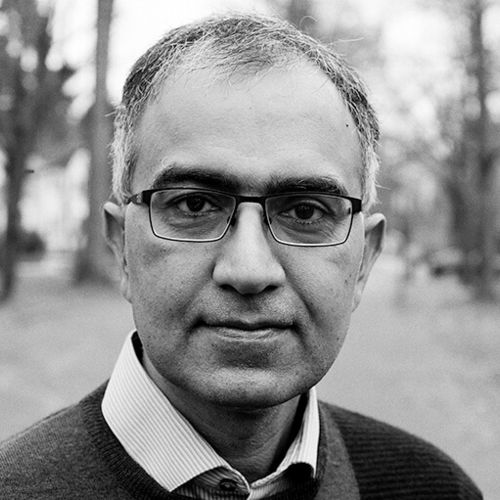Panel Discussion: Generative AI
Sanjeev Arora, Anil Ananthaswamy, Sébastien Bubeck, Björn Ommer, Margo I. Seltzer
Generative AI: Promises and Perils
With the arrival of large language models (LLMs) such as ChatGPT, artificial intelligence has seemingly reached a tipping point. LLMs are a kind of generative AI trained to produce new data that is statistically similar in structure to the data on which it was trained. Other well-known examples of such AIs are the image-generating DALL·E and Stable Diffusion.
As these AIs appear poised to disrupt and revolutionize many areas of science and industry, it is important for us to appreciate the power and the limitations of this technology.
This panel discussion will explore such issues concerning generative AI. The conversation will open with a panel of experts with a wealth of experience in computer science. They will provide insight into the theory of generative AIs, provide a brief history of the field, and examine the different ways in which engineers can build such systems. The discussion will highlight the enormous power of these systems, while also tackling provocative questions. For example: Are LLMs capable of actual reasoning or are they simply extremely good at sophisticated pattern matching? What happens when the internet is flooded with data generated by generative AIs? Will the next generation of such AIs begin to train themselves on content they produce, causing them to amplify their own errors and mistakes? Finally, what does generative AI tell us about how the human brain works?
Moderator: Anil Ananthaswamy
Moderator: Anil Ananthaswamy
Anil Ananthaswamy is an award-winning journalist and author. He is a former staff writer and deputy news editor for New Scientist magazine, and former MIT Knight Science Journalism fellow. He is currently the journalist-in-residence at the Heidelberg Institute for Theoretical Studies, and has been the journalist-in-residence at the Simons Institute at UC Berkeley. Ananthaswamy contributes regularly to Quanta Magazine, Scientific American, and others. He is the author of three popular-science books, The Edge of Physics, The Man Who Wasn’t There, and Through Two Doors at Once, and is currently writing a book on the mathematics of machine learning, titled Why Machines Learn.
Sanjeev Arora
ACM Prize in Computing - 2011
For contributions to computational complexity, algorithms, and optimization that have helped reshape our understanding of computation
Sébastien Bubeck
Sébastien Bubeck is a Partner Research Manager at Microsoft Research (MSR). He won multiple awards for his machine learning results around robustness and optimization. Most recently, he has been interested in understanding how intelligence emerges in large language models. With collaborators at MSR, he wrote the Sparks of AGI paper studying the emergent abilities of GPT-4. This work was covered in The New York Times, Wired, This American Life, and more.
Björn Ommer
Björn Ommer is a full professor at University of Munich where he is heading the Computer Vision and Learning Group. Before he was a full professor in the department of mathematics and computer science at Heidelberg University and a co-director of the IWR and the HCI. He received his diploma in computer science from University of Bonn and his PhD from ETH Zurich. Thereafter, he was a postdoc in the vision group at UC Berkeley.
Björn serves as an associate editor for IEEE T-PAMI. His research interests include semantic scene understanding and retrieval, generative AI and visual synthesis, self-supervised metric and representation learning, and explainable AI. Moreover, he is applying this basic research in interdisciplinary projects within the digital humanities and the life sciences. His group has published a series of generative approaches, including "VQGAN" and "Stable Diffusion", which are now democratizing the creation of visual content and have already opened up an abundance of new directions in research, industry, the media, and beyond.
Margo I. Seltzer
Margo I. Seltzer is Canada 150 Research Chair in Computer Systems and the Cheriton Family chair in Computer Science at the University of British Columbia. Her research interests are in systems, construed quite broadly: systems for capturing and accessing data provenance, file systems, databases, transaction processing systems, storage and analysis of graph-structured data, and systems for constructing optimal and interpretable machine learning models. Professor Seltzer received an A.B. degree in Applied Mathematics from Harvard/Radcliffe College and a Ph. D. in Computer Science from the University of California, Berkeley.

